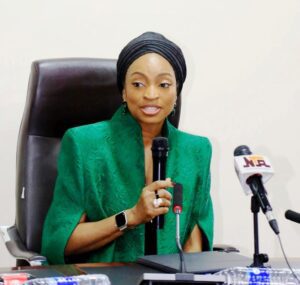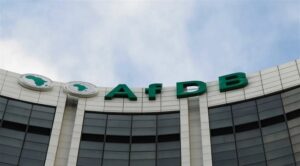First female MD/CEO of Fidelity Bank Onyeali-Ikpe assumes office
Mrs Nneka Onyeali-Ikpe, has formally assumed office as the 4th Managing Director and Chief Executive Officer and first female to occupy the position at Fidelity Bank Plc, effective on Jan. 1.
On Sunday, in Lagos, the bank disclosed that Onyeali-Ikpe took over from Mr Nnamdi Okonkwo, whose contract tenure ended on Dec. 31, 2020, in line with the bank’s governance policy.
The email assured the bank’s customers that: “under Mrs Onyeali-Ikpe’s leadership, the bank will consolidate on the already laid foundation and track record of performance, to execute the next growth phase.”
“Onyeali-Ikpe was formerly the Executive Director, Lagos and South West Directorate of the bank, and has been an integral part of management in the last six years.
“She joined the bank in 2015 and spearheaded the transformation of the Directorate, leading it to profitability and sustained its impressive year-on-year growth across key performance metrics, including contributing over 28 per cent of the Bank’s profit before tax, Deposits and Loans.
“She is vastly experienced and has spent over 30 years working across various banks, including Standard Chartered Bank Plc, Zenith Bank Plc and Citizens International Bank/Enterprise Bank, where she held several management positions in Legal, Treasury, Investment Banking, Retail/Commercial Banking and Corporate Banking.
“As an Executive Director at legacy Enterprise Bank Plc, she received formal commendation from the Asset Management Corporation of Nigeria (AMCON), as a member of the management team that successfully turned around Enterprise Bank Plc.
“She holds a Bachelor of Laws (LLB) degree from the University of Nigeria, Nsukka; a Master of Laws (LLM) degree from Kings College, London; and has attended executive training programmes at notable global institutions, including Harvard Business School; The Wharton School, University of Pennsylvania; INSEAD School of Business; Chicago Booth School of Business; London Business School and IMD,” the email said, in a citation.




